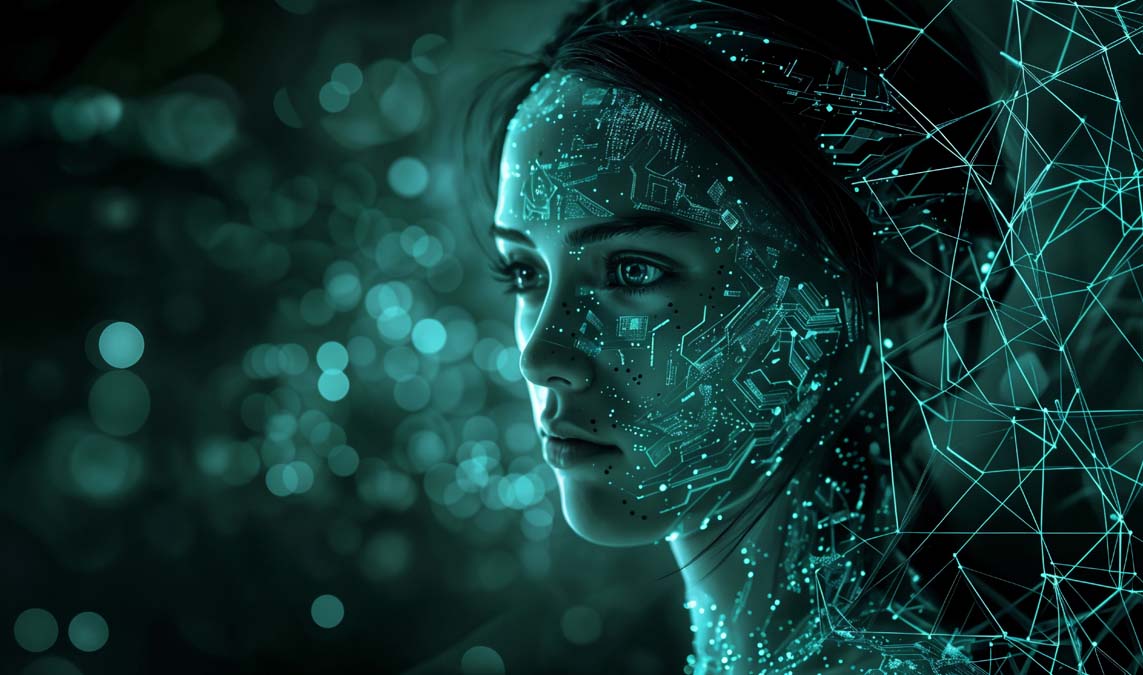Artificial Intelligence (AI) is no longer a futuristic concept—it is embedded in our everyday lives, from healthcare systems and education platforms to financial services and national defense. However, as this technology evolves, so does the need for a strong ethical framework. AI ethics has emerged as a critical global issue, calling for nations to collaborate, adopt shared values, and promote peace through responsible innovation.
Today, countries are developing AI technologies at a rapid pace. Still, without ethical principles in place, this growth can lead to inequality, surveillance abuse, misinformation, and even warfare. Thus, implementing AI ethics is not just a necessity for developers and policymakers but a global responsibility that can unite diverse societies and prevent conflict.
Defining AI Ethics and Its Global Significance
AI ethics refers to the principles that guide the development and deployment of artificial intelligence in ways that respect human rights, promote justice, and protect individuals from harm. These principles often include transparency, accountability, fairness, privacy, inclusivity, and safety.
Around the world, governments, universities, and tech companies are creating ethical guidelines. However, without a globally unified approach, these efforts remain fragmented. By aligning our ethical frameworks, we ensure that AI benefits all of humanity, regardless of nationality, economic status, or social background.
Moreover, a shared commitment to AI ethics can help reduce tensions among nations. When countries operate under the same ethical standards, they build mutual trust, prevent exploitation, and encourage peaceful cooperation.
Why AI Ethics Must Be Universally Adopted
While some countries have already embedded AI ethics into legislation, many regions still lack standardized practices. Consequently, marginalized communities often bear the brunt of unethical AI applications, such as biased algorithms or data misuse.
Therefore, to ensure a fair and inclusive technological future, nations must come together. Adopting AI ethics universally promotes peace and prevents the digital divide from growing further.
Additionally, by cooperating on ethical AI, countries can avoid escalating global tensions. For instance, autonomous weapons and surveillance tools must be governed by shared ethical laws to prevent misuse and potential warfare. A global pact on AI ethics could serve the same unifying purpose as climate agreements or humanitarian accords.
Key Ethical Principles That Promote Global Unity
A universally accepted AI ethics framework should include:
Transparency – AI systems should be explainable and open to scrutiny. This builds public trust and enables accountability.
Accountability – Developers and organizations must take responsibility for the outcomes of their AI systems.
Fairness – AI should treat all individuals equally, regardless of race, gender, geography, or socioeconomic status.
Privacy – Personal data must be protected and used ethically across all jurisdictions.
Safety – AI systems should be secure, especially when they affect critical sectors like healthcare and defense.
Inclusivity – Everyone, including underrepresented groups, should benefit from AI advancements.
Each of these principles helps build a world where peace is prioritized and technology becomes a tool for global harmony.

International Collaboration: Case Studies and Progress
Nations have already begun making strides in this direction. The European Union’s AI Act is an example of regulatory leadership focused on ethical AI. Simultaneously, countries like Japan, Canada, and South Korea have endorsed AI ethics in their national strategies.
Moreover, global alliances like the Global Partnership on AI (GPAI) and UNESCO’s Recommendation on the Ethics of Artificial Intelligence illustrate international willingness to collaborate. These initiatives bring together diverse perspectives and encourage joint action, making them valuable models for how ethics can lead to peaceful cooperation.
In Africa, AI for Good projects are helping solve humanitarian issues—from improving agricultural yield to optimizing disaster response. These collaborative initiatives not only promote technological growth but also unite nations around common ethical goals.
Challenges and How to Overcome Them
Despite the progress, several obstacles remain. First, there is no global enforcement mechanism to uphold ethical standards. Second, cultural and political differences can lead to varying interpretations of what constitutes ethical AI. Finally, commercial interests sometimes outweigh ethical considerations.
To address these challenges, multilateral dialogue is essential. International forums, such as the United Nations, should take a leading role in facilitating these conversations. Additionally, cross-border AI research partnerships can foster mutual understanding and generate globally accepted guidelines.
Another powerful solution is the establishment of an International AI Ethics Council, comprised of representatives from all regions. This body could function similarly to the UN’s Human Rights Council, focusing on developing and enforcing AI standards that bring peace, equality, and security to all.
The Role of Education and Public Awareness
For AI ethics to truly have a global impact, education must play a key role. By integrating AI ethics into school curriculums, university programs, and corporate training, we ensure that future developers and users of AI understand its societal implications.
Public awareness campaigns can also empower citizens to demand transparency and accountability. When people understand their rights and how AI affects them, they are better positioned to advocate for ethical practices.
A Vision for a Peaceful Future Powered by Ethical AI
Imagine a world where AI helps mediate international disputes, predict humanitarian crises, and allocate global resources fairly. This is not a utopian dream—it is a possibility if we embed ethics at the heart of AI development.
AI can either divide or unite us. It can sow discord or build bridges. The choice lies in how we, as a global society, choose to govern its use. By embracing AI ethics, we lay the foundation for unity, collaboration, and long-lasting peace.
Conclusion: Ethics as the Backbone of Global AI Peace
In conclusion, AI ethics is not a regional concern—it is a global imperative. Only through international cooperation, inclusive policies, and ethical innovation can we ensure that AI serves as a force for good. As nations unite around these shared values, the potential for global peace becomes stronger than ever before.
Let us choose collaboration over competition, ethics over expediency, and unity over division. The future of AI—and indeed the future of humanity—depends on it.







